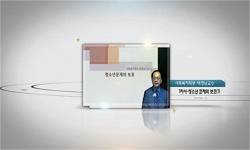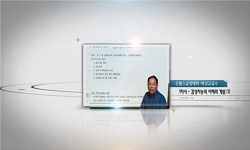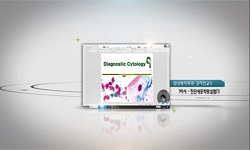The purpose of this study was to investigate the general trends and relationships between the emotional intelligence, motivations for choosing the teaching profession, and self-efficacy of pre-service early childhood teachers. We also sought to examin...
http://chineseinput.net/에서 pinyin(병음)방식으로 중국어를 변환할 수 있습니다.
변환된 중국어를 복사하여 사용하시면 됩니다.
- 中文 을 입력하시려면 zhongwen을 입력하시고 space를누르시면됩니다.
- 北京 을 입력하시려면 beijing을 입력하시고 space를 누르시면 됩니다.

예비유아교사의 정서지능과 교직선택동기가 자기효능감에 미치는 영향 = The Effect of Emotional Intelligence and Motivations for Choosing the Teaching Profession on the Self-Efficacy of Pre-Service Early Childhood Teachers
한글로보기https://www.riss.kr/link?id=A100665907
- 저자
- 발행기관
- 학술지명
- 권호사항
-
발행연도
2015
-
작성언어
Korean
- 주제어
-
KDC
300
-
등재정보
KCI등재후보
-
자료형태
학술저널
-
수록면
79-97(19쪽)
-
KCI 피인용횟수
13
- 제공처
-
0
상세조회 -
0
다운로드
부가정보
다국어 초록 (Multilingual Abstract)
The purpose of this study was to investigate the general trends and relationships between the emotional intelligence, motivations for choosing the teaching profession, and self-efficacy of pre-service early childhood teachers. We also sought to examine the effects of the teachers’emotional intelligence and motivations for choosing the teaching profession on their self-efficacy, so that they could have control of their future lives and improve their qualifications. First, in terms of the results for general trends in the emotional intelligence, motivations for choosing the teaching profession, and the self-efficacy of the pre-service teachers, their perception of emotional intelligence was found to be above normal. In terms of the sub-factors, self-emotional perception ranked the highest and emotional use the lowest. Active motivations, which are one sub-factor of motivations for choosing the teaching profession, took the highest position in statistical number. Meanwhile, passive motivations showed the lowest. Also, self-regulatory efficacy, a sub-factor of self-efficacy, took the highest position contrary to self-confidence, another sub-factor, which took the lowest. Second, on the relationships between emotional intelligence, motivations for choosing the teaching profession, and self-efficacy, there were correlations among these factors found in this study targeting pre-service early childhood teachers. Third, the effect of emotional intelligence and motivations for choosing the teaching profession on self-efficacy was clearly shown in the results. Therefore, there need to be measures taken for pre-service teachers to improve their emotional intelligence and choose the teaching profession in an active way to have decent self-efficacy, which can lead to successful lives for them personally and professionally.
참고문헌 (Reference)
1 최미숙, "예비유아교사의 자기결정성 동기에 대한 탐색: 사고양식, 사회적 지지의 관계" 한국열린유아교육학회 14 (14): 193-215, 2009
2 부성숙, "예비 유아교사의 정서지능이 자아개념 및 자기효능감에 미치는 영향" 한국생활과학회 21 (21): 649-664, 2012
3 김현진, "예비 유아교사의 교직에 대한 열정, 교사동기 그리고 교사효능감에 관한 연구" 한국열린유아교육학회 17 (17): 249-275, 2012
4 송미선, "보육교사의 정서지능과 직무스트레스와의 관계" 미래유아교육학회 16 (16): 99-119, 2009
5 Choi, J. Y., "The relationship between the motivation for teaching profession and commitment to teaching" Chuncheon University of Education 2006
6 Huberman, M, "The lives of teacher" Columbia University 1993
7 Wong, C., "The effects of leader and follower emotional intelligence on performance and attitude: An exploratory study" 13 : 243-274, 2002
8 No, H, M., "The effects of emotional state sand emotional intelligence one motional labor strategies and job-related attitudes in the context of emotional labo" Kwangwoon University. 2005
9 Law, K. S., "The construct and criterion validity of emotional intelligence and its potential utility for managements studies" 89 : 483-496, 2004
10 Jeon, I. O., "The Effects of Teacher's Educational Belief System and Teaching Efficacy on Verbal and Non-verbal Teaching Behaviors with Young Children" 19 : 203-237, 1999
1 최미숙, "예비유아교사의 자기결정성 동기에 대한 탐색: 사고양식, 사회적 지지의 관계" 한국열린유아교육학회 14 (14): 193-215, 2009
2 부성숙, "예비 유아교사의 정서지능이 자아개념 및 자기효능감에 미치는 영향" 한국생활과학회 21 (21): 649-664, 2012
3 김현진, "예비 유아교사의 교직에 대한 열정, 교사동기 그리고 교사효능감에 관한 연구" 한국열린유아교육학회 17 (17): 249-275, 2012
4 송미선, "보육교사의 정서지능과 직무스트레스와의 관계" 미래유아교육학회 16 (16): 99-119, 2009
5 Choi, J. Y., "The relationship between the motivation for teaching profession and commitment to teaching" Chuncheon University of Education 2006
6 Huberman, M, "The lives of teacher" Columbia University 1993
7 Wong, C., "The effects of leader and follower emotional intelligence on performance and attitude: An exploratory study" 13 : 243-274, 2002
8 No, H, M., "The effects of emotional state sand emotional intelligence one motional labor strategies and job-related attitudes in the context of emotional labo" Kwangwoon University. 2005
9 Law, K. S., "The construct and criterion validity of emotional intelligence and its potential utility for managements studies" 89 : 483-496, 2004
10 Jeon, I. O., "The Effects of Teacher's Educational Belief System and Teaching Efficacy on Verbal and Non-verbal Teaching Behaviors with Young Children" 19 : 203-237, 1999
11 Saejeonbuk News, "Teaching Aptitude and Personality Test"
12 Bandura, A., "Social Cognitive Development" Cambridge University Press 1981
13 Bandura, A., "Self-efficacy : The exercise of control." W. H. Freeman and Company 1997
14 Ju, S. Y., "Relationship of personality type to emotional labor and emotional intelligence in childcare workers" Namseoul University 2008
15 Ministry of Education, "Present conditions of teacher training facilities"
16 Lee, J. H., "Perception The relatioinships between achievement goal orientation and teaching efficacy beliefs of early childhood pre-service teachers" Ewha Woman's University. 2007
17 Bandura, A., "Perceived self-efficacy in cognitive development and functioning" 28 : 117-148, 1993
18 Salovey, P., "Emotional Intelligence: key readings on Mayer and Salovey model" Dude Pub 2004
19 Oh, S. J., "Effects of the Motivations of Choosing the Teaching Profession on Job Ability and Job Satisfaction in Public Kindergarten Teachers." Gyeongin National University of Education. 2011
20 Namgung, G, M., "Effect of motivation for choosing the teaching porofession on commitment to teaching and teacher efficacy in early childhood." Hanyang University. 2011
21 Jang, Y. S., "Correlation of Motivation for Choosing the Teaching Profession to Job Satisfaction in Elementary Teachers" Gyeongin National University of Education. 2010
22 Kim, A. Y., "Construction and validation of academic self-efficacy scale" 39 (39): 95-123, 2001
23 Tett, R, P., "Confirmatory factor structure of trait emotional intelligence in student and worker samples" 41 (41): 1155-1168, 2006
24 Goleman, D., "Comprehensive textbook of psychiatry" Lippintcott Willams & Wikins 2000
25 Bar-On, R., "Bar-On emotional quotient inventory(EQ-i): Technical manual" Multi-Health Systems 1997
26 Day, C., "Apassion for teaching." Paranmaum 2007
27 Kim, Y. R., "An Analysis on the Relationships between Self-Concept and Emotional Intelligence" 19 : 5-29, 2002
28 Kwak, K. M., "A study on the relationships among lifestyle, self-efficacy and bullying behavior in school perceived by adolescents" Kukmin University. 2013
29 Lim, S. Y., "A study on the relationship between emotional intelligence and leadership of secondary students" Seoul National University. 2007
30 Korea Federation of Teacher's Associations, "A Study on the consciousness of teachers teaching" Korean Federation of Education Associations 1983
31 Cha, J. U., "A Study of for Development of a General Self-Efficacy Scale" 34 : 19-31, 1996
32 Choi, U. J., "A Comparative Study on the Job Satisfaction by Self-Efficacy of Kindergarten and Child Care Center Teacher." DaeJun University of Education 2008
33 Lee. B. D., "(A) Study on Teacehrs’ Leadership and Professionalism." Korea University. 1987
동일학술지(권/호) 다른 논문
-
동화 들려주기 방법에 따른 만 2세 영아의 언어적,비언어적 반응
- 대한아동복지학회
- 조민순 ( Min Soon Cho )
- 2015
- KCI등재후보
-
학령후기 아동이 지각한 부,모의 공감과 또래관계에서 아동 공감의 매개효과
- 대한아동복지학회
- 윤세미 ( Se Mi Yoon )
- 2015
- KCI등재후보
-
안동하회탈춤놀이에서의 탈의 분석심리학적 의미와 모래놀이치료에서의 탈 상징
- 대한아동복지학회
- 장미경 ( Mi Kyung Jang )
- 2015
- KCI등재후보
-
성학대예방인형극이 유아의 성학대 위험에 대한 인식 및 대처에 미치는 효과
- 대한아동복지학회
- 김경희 ( Kyung Hi Kim )
- 2015
- KCI등재후보
분석정보
인용정보 인용지수 설명보기
학술지 이력
| 연월일 | 이력구분 | 이력상세 | 등재구분 |
|---|---|---|---|
| 2023 | 평가예정 | 재인증평가 신청대상 (재인증) | |
| 2020-01-01 | 평가 | 등재학술지 선정 (재인증) |  |
| 2019-01-01 | 평가 | 등재후보학술지 유지 (계속평가) |  |
| 2017-01-01 | 평가 | 등재후보학술지 선정 (신규평가) |  |
| 2015-12-01 | 평가 | 등재후보 탈락 (계속평가) | |
| 2013-01-01 | 평가 | 등재후보학술지 유지 (기타) |  |
| 2012-04-17 | 학술지명변경 | 한글명 : 아동복지연구 -> 아시아아동복지연구외국어명 : Korean Journal of Child Welfare -> Asian Journal of Child Welfare and Development |  |
| 2012-01-01 | 평가 | 등재후보 1차 PASS (등재후보1차) |  |
| 2010-01-01 | 평가 | 등재후보학술지 선정 (신규평가) |  |





 KCI
KCI KISS
KISS






